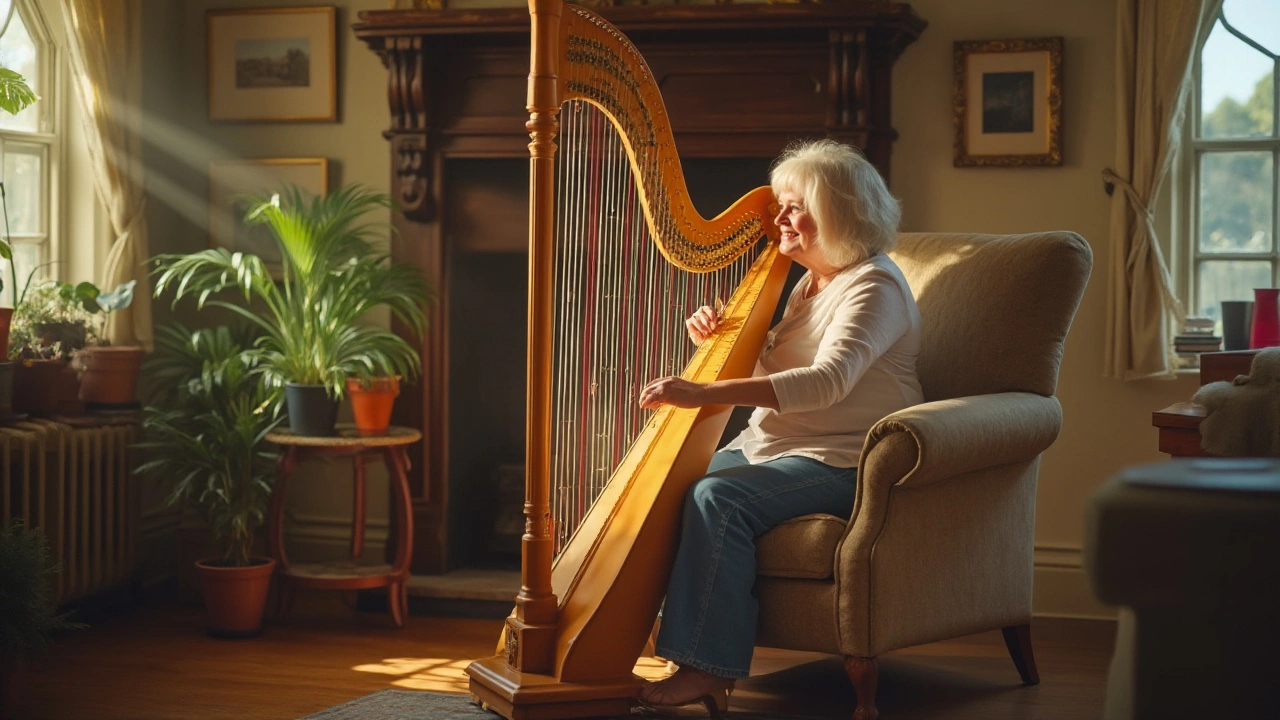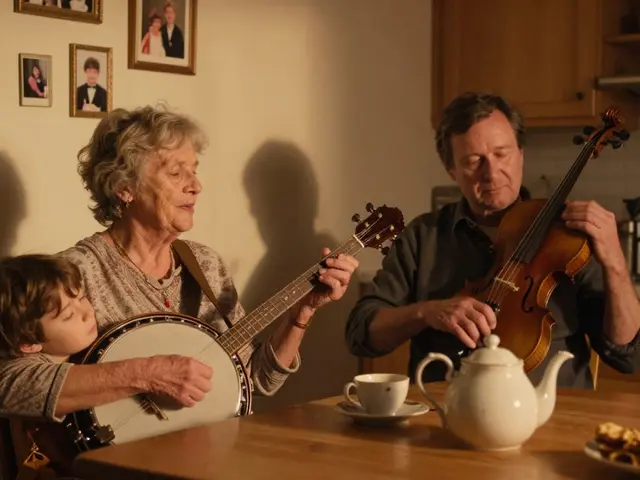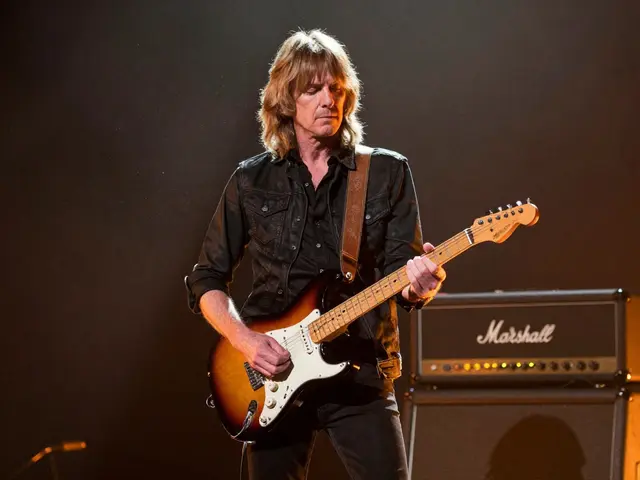Music and its mesmerizing power have captivated human hearts for centuries. The inexplicable bond found between strings, keys, and voices has the extraordinary ability to delve deep into our emotions. But beyond the simple pleasure of listening, playing musical instruments can work wonders in healing our minds and souls. Whether you're strumming a guitar or dancing your fingers across a piano, these instruments offer a unique form of therapy that enhances our well-being.
This article explores how playing musical instruments transcends mere hobby status and steps into the realms of therapy. We'll uncover the surprising ways in which music can combat stress, improve our mental health, and even transform our lives. With each note, we move closer to a world where creativity meets therapy, offering solace and strength to those who embrace it.
- The Mind-Body Connection in Music
- Cognitive and Emotional Benefits
- Instruments and Stress Relief
- Practical Tips on Integrating Music into Daily Life
- Stories of Transformation Through Music
The Mind-Body Connection in Music
Our relationship with music is as old as time itself, weaving its way through the fabric of cultures and societies worldwide. The language of music speaks to us in ways words cannot, touching the deepest parts of our hearts and minds. When you pick up an instrument, you're not just playing for auditory pleasure; you're entering a dialogue between body, mind, and spirit. Every note strummed on a guitar or key pressed on a piano embodies this mystical dance that harmonizes thoughts and breathes life into emotions.
Studies show that playing music can lead to significant health benefits. Playing an instrument requires and develops coordination, boosting neural pathways and enhancing brain function. The act of making music engages almost every part of the brain at once, particularly the visual, auditory, and motor areas—a truly magical exercise for mental health. As musicians' fingers fly across strings or slide along a flute, their brains sync with their movements, reinforcing the depth of the mind-body connection.
"Music can change the world because it can change people," said Bono, and this rings particularly true in the therapeutic arena.
Engagement with musical instruments is a profound cognitive workout. Not only does it encourage innovation and creative thinking, but it also helps us process emotions healthily. Anxiety and depression meet their counterforces in the melodies crafted by our own hands, echoing the victorious symphony of resilience. It’s a multi-sensory symphony for sanity, unfurling the knots tied by everyday stressors.
The Science Behind Music's Impact
In examining how musical instruments act as portals to better mental states, scientists have unearthed important empirical findings. Research indicates that the type of instrument you play can have differing effects on your mind. String instruments, often synonymous with calmness, can lower heart rates and reduce blood pressure, whereas the rhythmic tapping of percussion instruments presents its own therapeutic qualities, liberating pent-up energy and emotion. Such activities have been associated with increased levels of dopamine, the brain’s feel-good chemical, which, in turn, promotes feelings of well-being and happiness.
A 2019 study revealed astounding results regarding improved memory and executive function in older adults who undertook regular musical training. Participants showed greater memory retention and cognitive longevity, conserving mental acuity. Such insight illustrates the powerful brain-boosting benefits bestowed by regular engagement with music-making.
Practical Implications of Musical Therapy
If you’re considering taking up an instrument to nurture the mind-body connection, start with one that resonates with you emotionally. A harmonica might appeal with its lightness, while a piano provides depth. Remember, there is no right or wrong instrument; each holds potential for healing. Begin slowly, allowing your mind to merge with the melody, and your body will follow naturally. The process eventually becomes a sanctuary of its own, a moment away from the noise of the world where music offers peace. Music therapy acknowledges and channels this connection, helping countless people remedy trauma or stress. This bond offers a therapeutic sanctum that lets us express our inner worlds, one note at a time.
Cognitive and Emotional Benefits
Playing musical instruments is a fantastic way to boost our cognitive function. Researchers have found that engaging with music involves nearly every part of the brain. It enhances neural connections, which can lead to improved memory, attention, and cognitive flexibility. Think of how playing an instrument requires coordination between your hands, eyes, and ears. This multi-sensory involvement is like a full brain workout, helping to keep the mind sharp and agile. What's incredible is how these skills transfer to other areas of life, enhancing your ability to multitask and process information efficiently.
Delving into emotional benefits, music acts as a genuine emotional outlet. It enables a person to express feelings they might otherwise struggle to articulate. Many find the process of shaping a musical phrase akin to shaping their own mood. The discipline and patience required to learn an instrument also cultivate emotional resilience. Mental health professionals often highlight how playing music can elevate mood, reduce symptoms of anxiety, and help form a more positive self-concept. Playing, whether alone or in a group, opens new channels of communication and emotional sharing, fostering a support network that can be crucial to personal health.
"Music can change the world because it can change people." - Bono
Moreover, studies show that playing instruments, especially in a social setting, releases dopamine, the 'feel-good' hormone. This not only enhances mood but strengthens your brain's ability to cope with stress. Music-making encourages a sense of accomplishment and fulfillment. Picture this: every time you reach those perfect harmonies or nail a complex rhythm, your brain experiences a measurable boost in happiness and engagement. This is especially true in group music-making settings, which help build trust, empathy, and a sense of belonging, key ingredients to emotional well-being.
Tools for Mental Health
In today's fast-paced world, where stress is a common companion, the therapeutic potential of music is being explored more widely. Various organizations are researching how playing instruments can address modern emotional and psychological challenges. Structured music therapy sessions are being used in hospitals and therapeutic programs worldwide, underscoring the instrument's role as healing tools. Whether it's the soothing strum of a harp or the meditative tones of a flute, music's ability to lower cortisol levels and evoke relaxation is gaining recognition as a sustainable way to manage mental health.
Looking closer at the science, a fascinating reveal is the way musical activity engages both parts of the brain. This concoction of creativity and logic not only bolsters cognitive abilities but equips musicians to better handle life's curveballs. The discipline required to perfect a piece can sharpen focus and determination, driving improvements that resonate far beyond music rooms. Each session with an instrument nudges the brain toward creating new patterns, fostering adaptability, and nurturing personal growth. So maybe give it a try, because you might discover an unexpected boost in your emotional and cognitive well-being.

Instruments and Stress Relief
In our fast-paced world, stress has become a ubiquitous part of life. Whether it's work deadlines, personal responsibilities, or unexpected challenges, maintaining a sense of calm can feel impossible. Yet, music holds a profound key to unlocking relaxation and peace. Playing musical instruments acts as a powerful remedy against stress, presenting an opportunity to unload the weight of the day through harmonious expression. Instruments like the guitar, piano, and drums provide an outlet, channeling tension into creativity. When one immerses themselves in the rhythms of a percussion instrument or fingers the keys of a piano, they enter a world of their own, a haven where stress can't intrude.
The fascinating interaction between music and stress has been the subject of numerous scientific studies, showcasing how music can lower cortisol levels and boost endorphins, the "feel-good" chemicals in our brains. A notable study published in the journal Psychomusicology revealed that engaging in music-making activities significantly reduces levels of anxiety and increases emotional well-being. Playing an instrument, especially in a group setting, encourages deep breathing, focused attention, and a sense of accomplishment that collectively ease stress. These effects are not merely transient; with regular practice, they can lead to long-term improvements in one's mood and stress resilience.
The Role of Routine and Rhythm
Integrating a musical routine into daily life can be a transformative practice. Establishing a set time to play an instrument creates a calming rhythm in one’s day. It becomes a predictable event to look forward to, a ritualistic pause button that counters chaos. The physical act of making music, whether rhythmic drumming or flowing piano, requires mindfulness, stripping away intrusive thoughts. This is akin to mindfulness practices like meditation or yoga, but with the added joy of music creation. The repetitive motions, harmonies, and melodies require focus that naturally diminishes the space available for stressors. Those who dedicate even short periodic sessions notice reduced anxiety and increased patience and optimism.For some, the journey begins with learning to play; tackling a new skill boosts confidence and provides a satisfying break from the monotony of daily stresses. Others find solace in the expressive outlet provided by instruments. Different tones and tempos enable a person to communicate emotions that words may not capture. Picking up a guitar or sitting down at a piano allows for immediate emotional release. It’s a magical experience, one described by musicians worldwide - being "lost" in the music. Playing instruments fosters a state of flow, described as a balance between challenge and skill, where time slips by unnoticed. As John Lennon aptly put it,
"Music is everybody's possession. It's only publishers who think that people own it."This accessibility extends to its stress-relieving properties; anyone can pick up an instrument and tap into its soothing power.
Practical Tips on Integrating Music into Daily Life
Incorporating music into your everyday routine might seem daunting, but the benefits are undeniably worth the effort. Creating a daily rhythm around music can be invigorating and profoundly therapeutic, inviting a wealth of emotional and mental health advantages. For starters, designate a specific time each day to practice your favorite instrument. Mornings could be an especially effective slot, as they set an optimistic tone for the day. Taking just twenty minutes to play the guitar or piano in a quiet corner can amplify the sense of tranquility as the day begins. Imagine it as a sort of musical meditation, where the melodies become as familiar and grounding as the sound of your own breath.
If you're strapped for time, make music an integral part of activities you already engage in. Cooking, cleaning, or even unwinding after work can transform into more pleasurable experiences when accompanied by the soothing strains of an instrument. Just imagine washing dishes while strumming a ukulele or folding laundry while humming along with your harmonica. It might sound unconventional, but weaving music into mundane tasks can transform chores into opportunities for creative expression and relaxation.
Another practical approach is to join a music group or class. Here, the social aspect of music becomes a powerful ally in its therapeutic impact. Meeting people who share your interests can be incredibly motivating and provide a support system that encourages you to grow and improve. Group settings offer a unique chance to learn from others, spark imagination, and indulge in collaborative creativity. It has been widely acknowledged that community-based music activities significantly improve mental well-being. Moreover, research from the British Journal of Psychological Research indicated that adults who participate in group music sessions reported a greater sense of satisfaction compared to solitary practices.
Equally, cultivating a habit of listening before bedtime can do wonders for sleep quality. Sound waves positively impact your brain, easing tensions, and gently ushering you into a peaceful slumber. Choosing instruments that produce soft, melodic sounds, like the harp or flute, can promote deep relaxation. Experiment with different styles of instrumental music and discover the combinations that best lull you to sleep. You may find a surprising ally in music therapy's ability to heal and restore balance.
"Where words fail, music speaks," observed Hans Christian Andersen, underscoring the abstract yet profound communication music facilitates in soothing the mind.
Of course, technology plays a pivotal role in seamlessly integrating music into modern, hectic lifestyles. Various apps and online platforms provide accessible avenues for learning new instruments and tracking progress. These resources allow you to fit short, effective practice sessions even into the busiest of schedules. You can set daily reminders, track improvements, and connect with communities passionate about using music to enhance their well-being. The digital journey of learning instruments can be incredibly fulfilling and convenient. As more individuals embrace this virtual world of musicianship, they find that setting and reaching tangible goals becomes more manageable and rewarding. In our contemporary quest to balance work, life, and personal passions, music therapy indeed emerges as a serene yet powerful medium for healing and growth.

Stories of Transformation Through Music
Throughout the ages, music has played the role of comforter, healer, and friend. For many, picking up a musical instrument was more than an artistic venture; it was a journey towards personal healing and discovery. One striking story is that of a veteran who found solace in the gentle strumming of a guitar. After years of struggling with the memories from his tours, music became his refuge. The act of creating melodies offered him a new, peaceful language to process his experiences, helping him reconnect with the world.
"Music expresses that which cannot be put into words and that which cannot remain silent," wrote Victor Hugo, emphasizing how sound can convey the unspoken realities of human experience.
Another remarkable journey is that of a child diagnosed with autism. Traditional means of communication were always challenging, but when introduced to the piano, it was as if a new world opened up. The keys were not just tools of sound; they became extensions of emotions that words couldn't encapsulate. Parents and therapists watched in awe as the child experienced newfound joy and included musical expression to navigate emotions previously unreachable through conventional therapy. Renowned child development specialist Dr. Oliver Jones notes, "The ability of musical instruments to bridge cognitive gaps is nothing short of extraordinary, signaling new paths for therapeutic intervention."
Musical Instruments as a Source of Renewal
For some, the therapeutic impact of playing an instrument came during life’s difficult transitions. Consider the story of an elderly woman who began learning the violin after retiring. Having always admired the haunting beauty of string music, she took on the challenge. As her fingers danced along the strings, she didn't just learn to play; she found a new purpose. The violin offered a sense of renewal, ushering her into a vibrant community of learners and listeners alike. This newfound passion rekindled her curiosity and zest for life that her earlier years had not. Such transformations highlight how music serves as a timeless balm, fostering personal growth and community engagement.
Additionally, consider the case of a young man recovering from substance abuse. He found that the discipline and focus required to learn the drums gave him a new outlet for his energy and creativity. The structured rhythm became analogous to the structure he desired in his life. Participating in group music sessions introduced a network of support that motivated his journey to rehabilitation. As he became more skilled, playing not only boosted his self-esteem but also provided a non-verbal way of conveying resilience and hope. It's incredible how such experiences underscore the inseparable link between music and healing.






